Time seems frozen at the mouth of Back Cove.
Despite restless tides and the nearby rush of interstate traffic, one corner of the shore seems remarkably unchanged: the B&M Baked Beans factory.
Since 1913, the four-story building in Portland has been churning out canned food. Today, inside and out, it looks relatively unchanged – a living time capsule from the era of silent films, World War I and the early days of assembly lines.
This year, B&M celebrates its 150th anniversary.
The business began on Franklin Street in 1867, when George Burnham opened a food cannery to package meat, vegetables and fish. Soon thereafter, he was joined by Charles Morrill to form the Burnham & Morrill Co. The pair eventually developed their prized product: a gooey combination of beans, spices and condiments that has been the constant companion to hot dogs and other Saturday night fare for decades.
Nearly 50 years after its founding, the operation moved to the edge of Casco Bay – at 1 Bean Pot Circle – where it continues to pump out steam and the scent of molasses.
Inside, the production line is gravity-fed, for the most part. On the top floor, empty 200-pound iron bean pots swing from a ceiling-mounted rail system. Hairnet-clad workers use brute force to roll the cauldron-like pots from one station to the next, filling them with beans, molasses, cane sugar and other ingredients.
After baking for several hours inside industrial ovens that are shaped like top-loading washing machines, the pots, which now weigh 900 pounds, are dumped by hand into a chute. From there, they slide down to the canning line. Eventually, each can wends its way into the facility’s 40,000-square-foot warehouse on the ground floor.

Strike-bound food stocks at Burnham and Morrill in 1946. Portland Press Herald photo courtesy Portland Public Library Special Collections and Archives
The company’s main ingredient – pea beans – is sourced from Michigan and Manitoba and arrives by truck in 2,000-pound bags. For decades, the dry beans were shipped by train, but in the fall of 2015 the St. Lawrence & Atlantic Railroad discontinued freight service between Auburn and B&M – the railway’s southern terminus. B&M was the sole customer along the 24-mile stretch of rails and it was no longer cost-effective to maintain the tracks. Today the beans are transported by truck, and that has increased costs, according to production supervisor David Rickett.
Despite the plant’s antique appearance, a lot has changed over the years. At its peak, the facility employed more than 300 workers, Rickett said. But automation gradually took over, and today that number stands at 75.
Rickett, 63, has worked at B&M for nearly 45 years. He said the baking process and recipe have evolved. The cans no longer include a traditional cube of salt pork, for instance. Consumer habits have also changed.
“Every Saturday night was bean night. Beans and hot dogs,” he said. “Now that we have millennials, I think they’ve gotten away from the traditional bean dinners.”

Burnham & Morrill is seen at night in this rare Anscochrome photo, probably from the early 1960s.
Employee Thomas Coreau, 72, has been making beans for nearly 50 years. He agrees a lot has changed.
When Coreau started in 1967, he earned about $2 an hour. Today, the starting pay is between $16 and $18 an hour, depending on the job. Coreau now earns a top-of-the-scale wage of almost $21 per hour.

An aerial view of Burnham and Morrill Food Products factory, from the southwest, in 1941. Tukey’s Bridge is visible in the foreground. Portland Press Herald photo courtesy Portland Public Library Special Collections and Archives
Conditions were tougher back then, he said. There were smaller windows, no fans and temperatures exceeded 100 degrees. “It was hot 24 hours a day,” he recalled.
Today, fans blow steam into spirals and large windows open to the cool, salty air of the bay.
Coreau plans to retire on his 50th anniversary this fall, if not sooner. He credits his mindset for getting him through a half-century of work.
“Mind over matter,” he said. “You just take one day at a time. That’s it.”
As for the churning steam and sweet smells from the 150-year-old company, Rickett said he has a simple wish.
“Hopefully it continues.”
Ben McCanna can be contacted at:
bmccanna@pressherald.com
Send questions/comments to the editors.


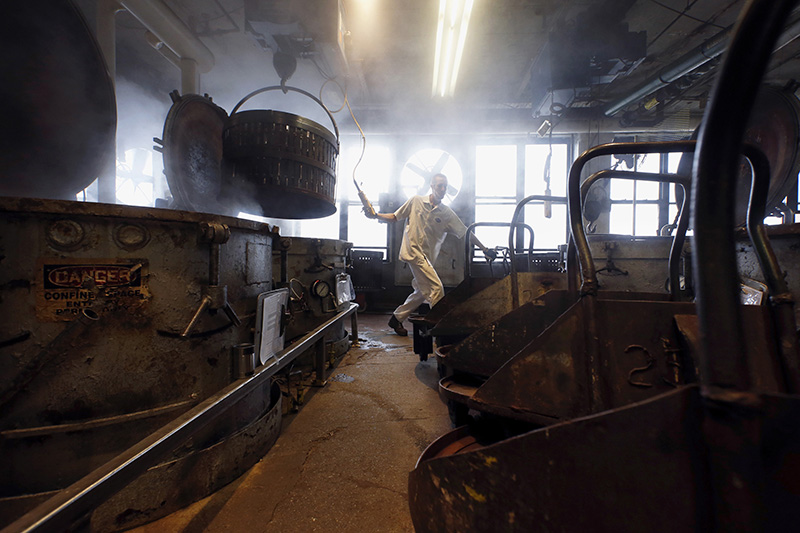

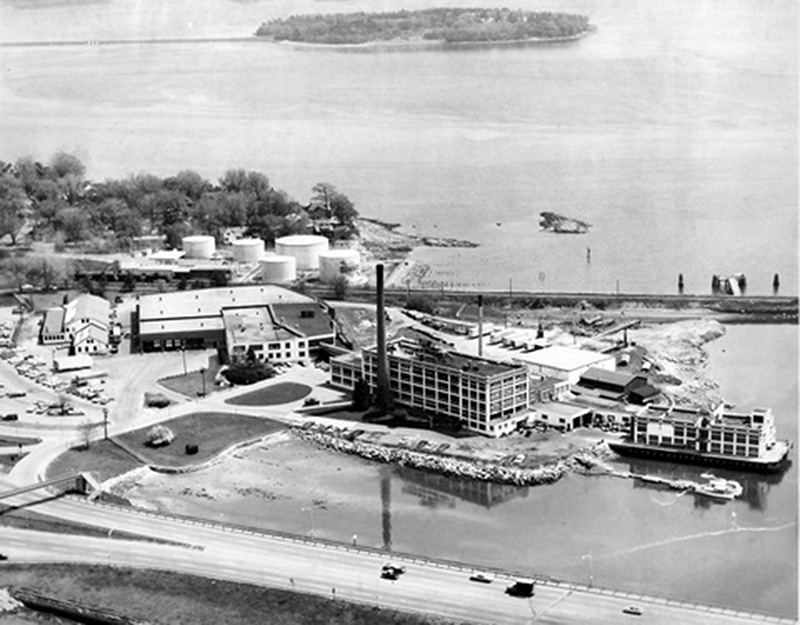
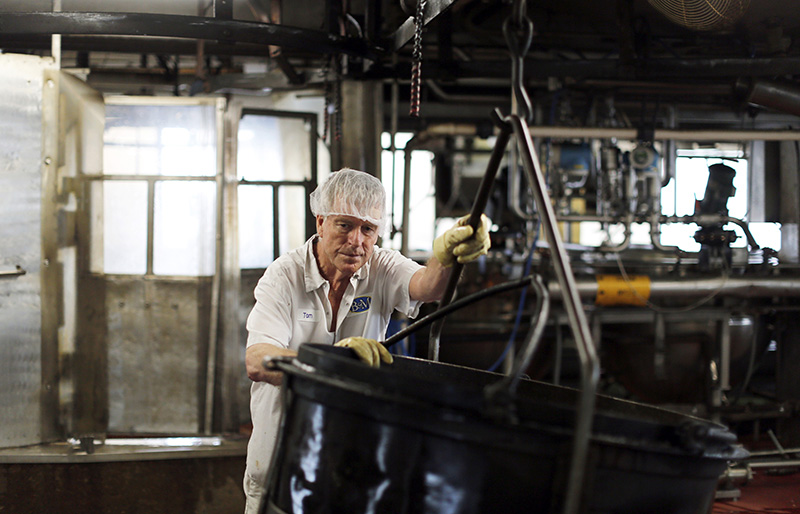
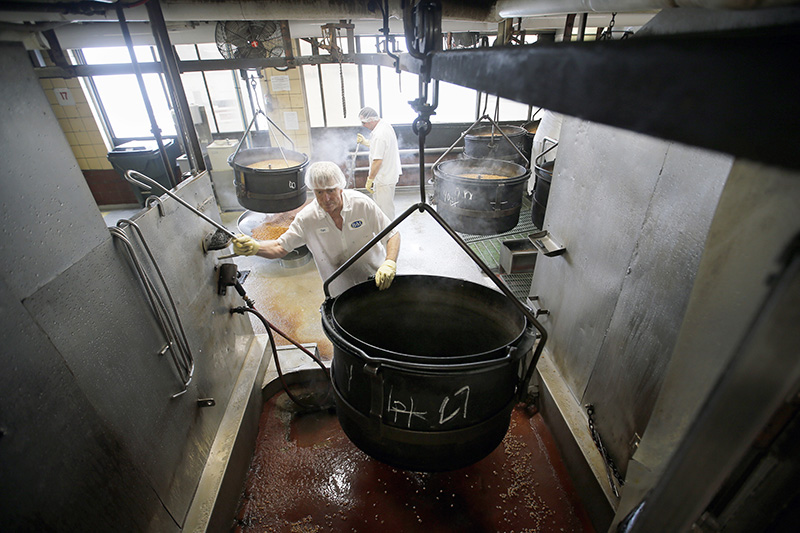
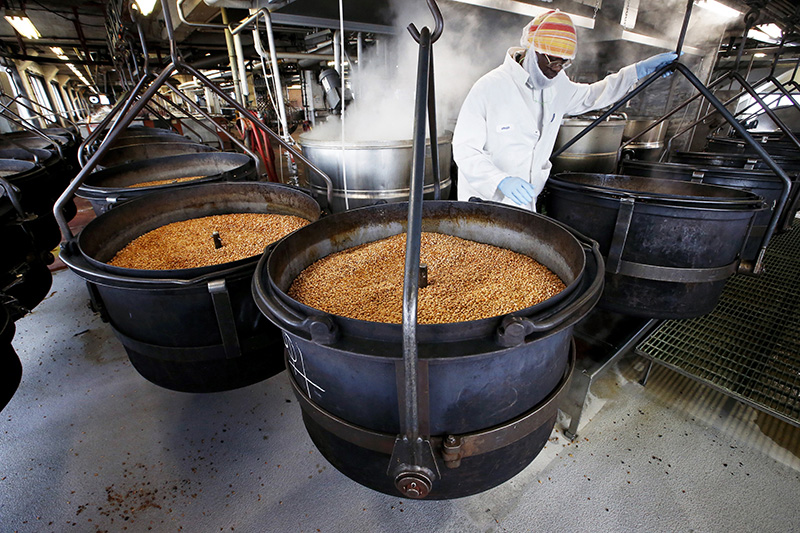
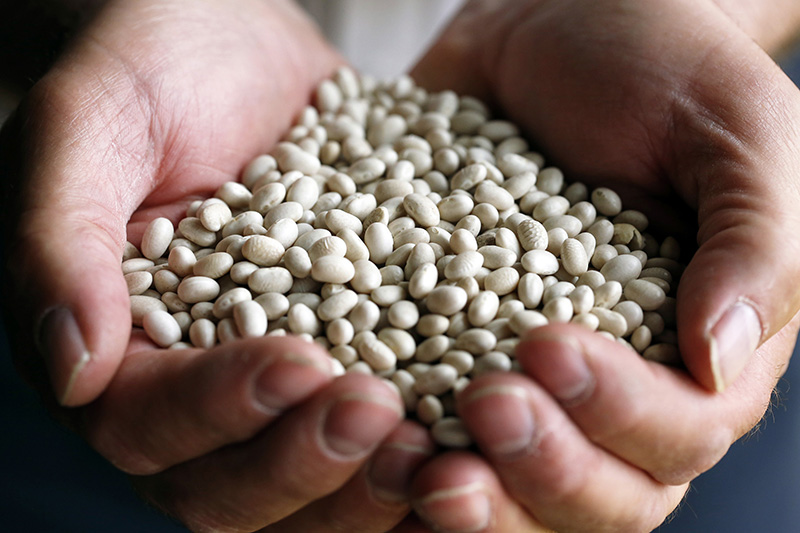
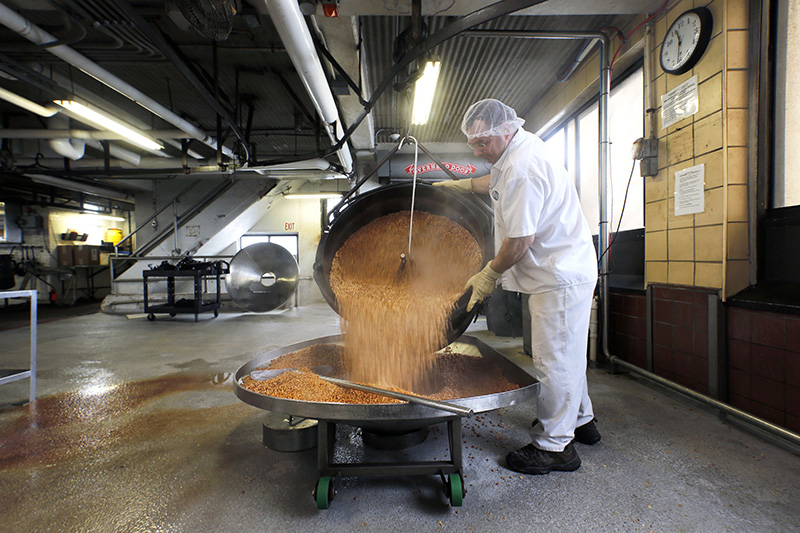
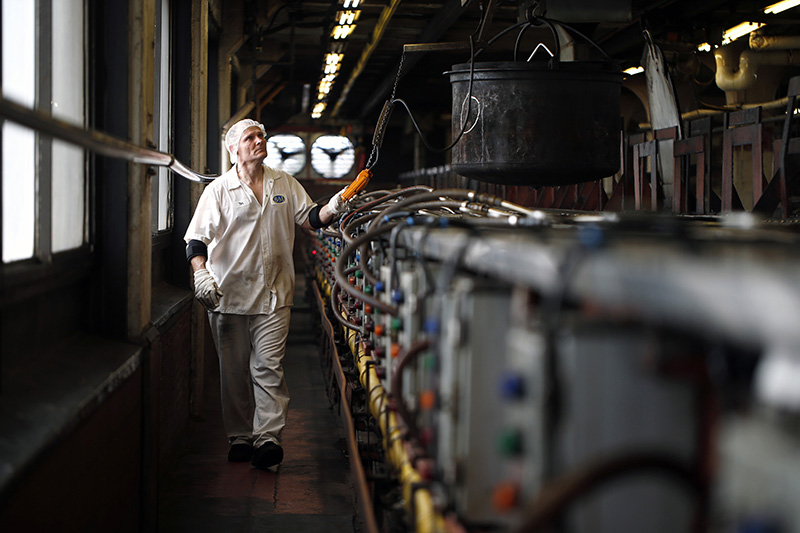
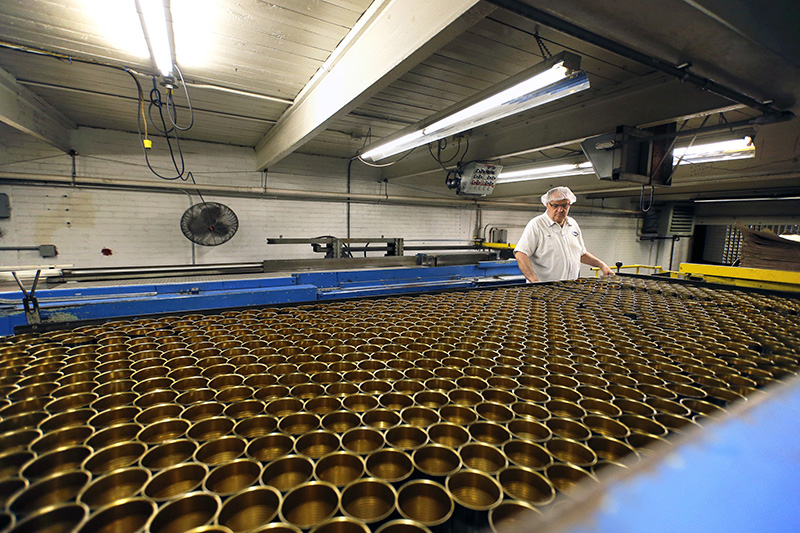
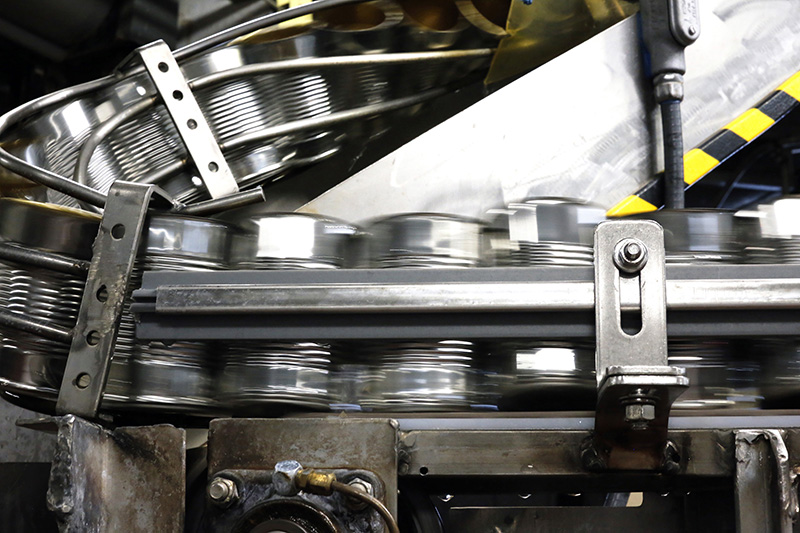
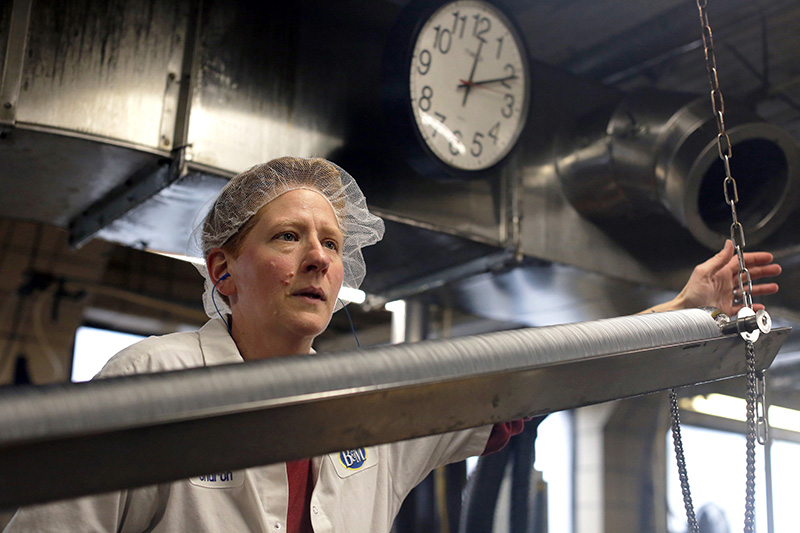
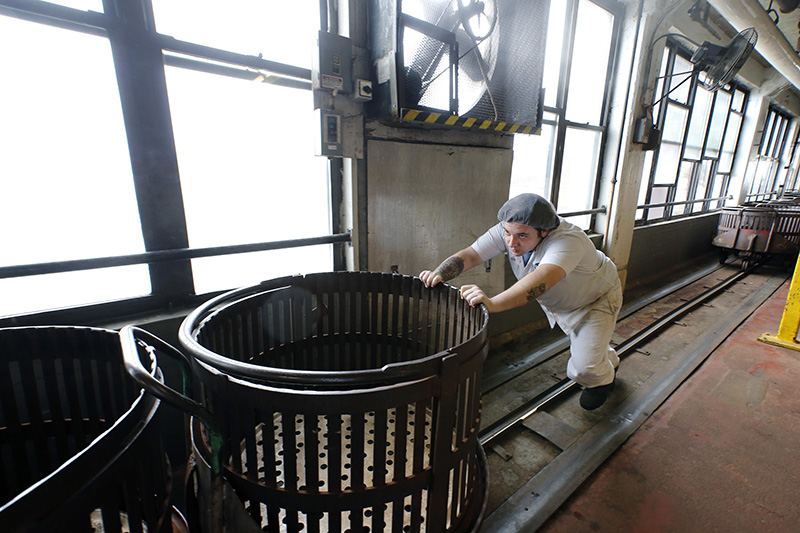
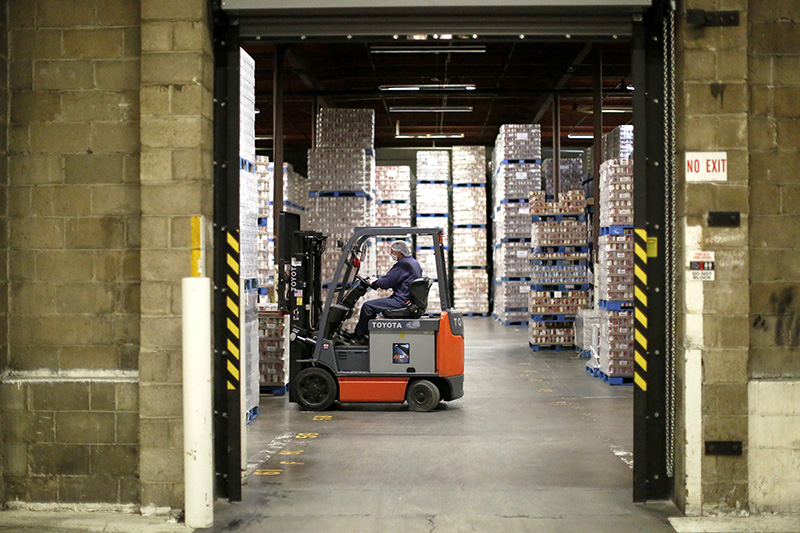
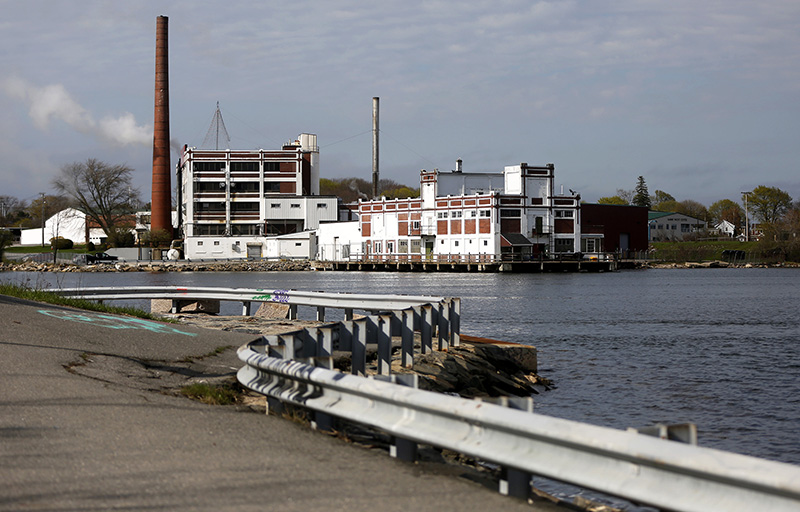

Success. Please wait for the page to reload. If the page does not reload within 5 seconds, please refresh the page.
Enter your email and password to access comments.
Hi, to comment on stories you must . This profile is in addition to your subscription and website login.
Already have a commenting profile? .
Invalid username/password.
Please check your email to confirm and complete your registration.
Only subscribers are eligible to post comments. Please subscribe or login first for digital access. Here’s why.
Use the form below to reset your password. When you've submitted your account email, we will send an email with a reset code.